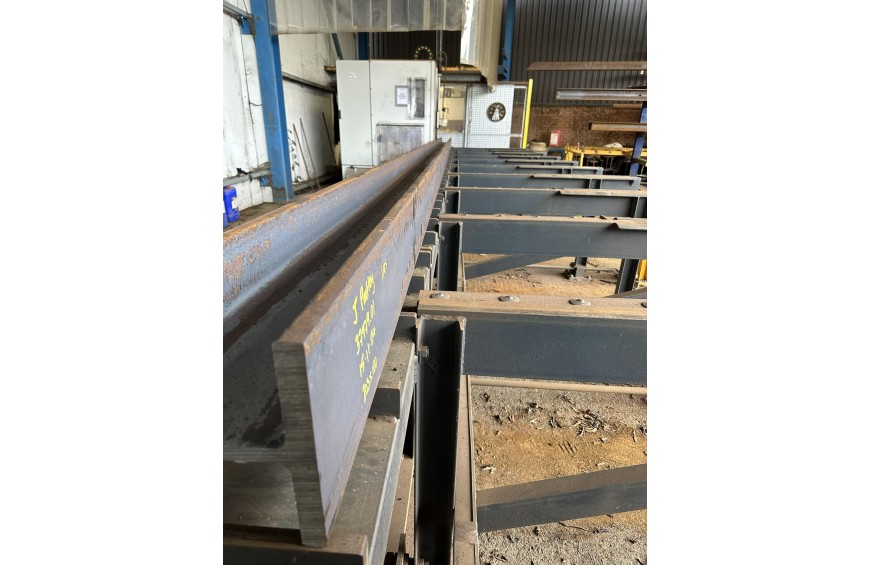Selecting the right steel fabricator is a crucial decision that can make or break the success of a construction or manufacturing project. A reliable fabricator not only delivers high-quality steel components but also ensures that the project stays on schedule and within budget. However, with so many options available, choosing the best partner can feel overwhelming.
In this article, we’ll outline the key factors to consider when selecting a steel fabricator, explain why these factors matter, and offer actionable tips to guide your decision.
Why Choosing the Right Steel Fabricator is Critical
1. Ensuring Quality and Safety
Steel fabrication is at the heart of infrastructure and machinery. Poor-quality fabrication can compromise structural integrity, leading to safety hazards, costly repairs, or even catastrophic failures.
Impact of Low-Quality Fabrication:
- Weak or poorly welded joints can fail under stress.
- Incorrect dimensions can cause misalignment during assembly.
- Subpar materials may corrode or weaken prematurely.
2. Staying on Schedule and Budget
Delays in steel fabrication can have a ripple effect on the entire project timeline. Additionally, hidden costs from errors, rework, or material waste can inflate budgets.
The Right Fabricator Will:
- Adhere to agreed deadlines.
- Provide transparent pricing with minimal unexpected costs.
- Deliver consistent quality to prevent time-consuming corrections.
3. Customization and Flexibility
Every project has unique requirements, and a good steel fabricator should be able to accommodate custom designs, materials, and finishes without sacrificing quality or efficiency.
Key Factors to Consider When Choosing a Steel Fabricator
1. Experience and Expertise
The fabricator’s track record in the industry is a strong indicator of their capability. Experienced fabricators are better equipped to handle complex projects, anticipate challenges, and deliver quality results.
What to Look For:
- Years of experience in steel fabrication.
- Portfolio of completed projects, especially those similar to your own.
- Specialization in the type of fabrication your project requires (e.g., structural steel, custom components, or industrial applications).
2. Certifications and Standards
Certifications demonstrate that the fabricator adheres to recognized industry standards and best practices.
Important Certifications:
- ISO 9001 for quality management systems.
- American Institute of Steel Construction (AISC) certification for structural steel fabrication.
- Welding certifications such as AWS (American Welding Society) standards.
3. Technology and Equipment
Advanced technology and modern equipment enable fabricators to deliver precise, efficient, and cost-effective results.
Key Technologies to Look For:
- CNC machines for precision cutting and shaping.
- Robotic welding systems for consistent and high-quality welds.
- Laser cutting tools for intricate designs and minimal material waste.
4. Capacity and Scalability
The fabricator should have the resources to meet the scale and timeline of your project. Small fabricators may struggle with large orders, while larger firms may lack the personal attention your project needs.
Questions to Ask:
- Can they handle the volume of work your project requires?
- Do they have the workforce and facilities to deliver on time?
- Are they flexible enough to adapt to changes or challenges?
5. Communication and Customer Service
Clear communication is essential for a smooth fabrication process. A good fabricator will keep you informed, respond promptly to inquiries, and be transparent about progress and challenges.
Red Flags:
- Poor responsiveness to emails or calls.
- Lack of clarity in quotes or contracts.
- Unwillingness to provide regular updates.
6. Cost and Value
While cost is always a consideration, it’s important to focus on value rather than just the lowest price. Cheap fabrication often results in inferior quality, leading to higher long-term costs.
How to Evaluate Cost:
- Compare quotes from multiple fabricators.
- Ensure quotes include all relevant services, such as material sourcing, transportation, and installation.
- Consider the fabricator’s reputation for quality and reliability.
Steps to Evaluate and Choose a Steel Fabricator
Step 1: Define Your Project Requirements
Before reaching out to fabricators, have a clear understanding of your project needs:
- Type and grade of steel required.
- Specifications and dimensions of components.
- Timeline and budget constraints.
Step 2: Research and Shortlist Potential Fabricators
Use online searches, industry directories, and referrals to identify reputable fabricators. Pay attention to:
- Reviews and testimonials from previous clients.
- Case studies or portfolios showcasing their work.
- Their specialization and industry focus.
Step 3: Request and Compare Quotes
Reach out to shortlisted fabricators with detailed project requirements and request quotes. Ensure the quotes include:
- Material costs.
- Fabrication and assembly costs.
- Lead times and delivery schedules.
Step 4: Conduct Site Visits and Interviews
Visit the fabricator’s facility to assess their capabilities firsthand. During the visit:
- Inspect their equipment and technology.
- Discuss their approach to quality control.
- Meet with their team to evaluate their expertise and professionalism.
Step 5: Review Contracts and Agreements
Once you’ve selected a fabricator, review the contract carefully to ensure it aligns with your expectations. Look for:
- Clear timelines and milestones.
- Detailed cost breakdowns.
- Terms for addressing delays, errors, or disputes.
Benefits of Partnering with the Right Steel Fabricator
1. Increased Efficiency
A reliable fabricator streamlines the entire fabrication process, ensuring that your project stays on schedule and within budget.
2. Superior Quality
Precision in fabrication reduces errors, improves safety, and enhances the lifespan of the finished product.
3. Long-Term Partnerships
Building a relationship with a trusted fabricator can lead to smoother collaboration on future projects and potentially better pricing or priority service.
Conclusion
Choosing the right steel fabricator is a pivotal decision that directly impacts the quality, safety, and success of your project. By focusing on factors like experience, certifications, technology, and communication, you can identify a fabricator who meets your needs and delivers value.
Investing the time to evaluate potential fabricators thoroughly will pay off in the form of superior results, fewer headaches, and a more efficient project workflow. Remember, the cheapest option is not always the best—prioritize quality, reliability, and long-term value to ensure the success of your project.



Submit comment Cancel Reply